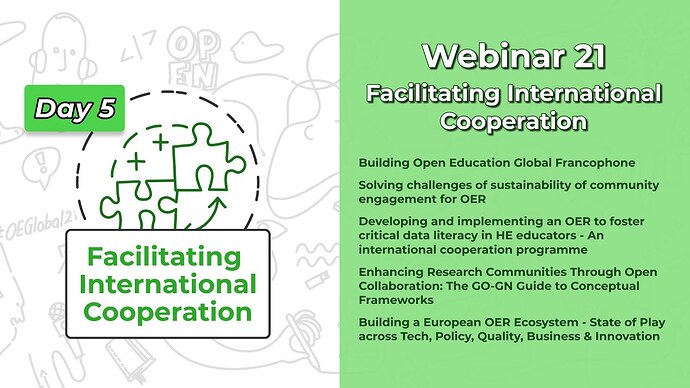Caroline Kuhn (Bath Spa university), Javiera Atenas (Latin American Initiative for Open Data - Open Education Working Group, Open Knowledge International), Leo Havemann (UCL), Carolina Veiga (University of La Republica), Manuel Podetti (Universidad de La Republica), Virginia Rodes (Universidad de la republica)
In 2019 we successfully applied for an EPSRC grant through the Human Data Interaction+ Network (UK) to develop a critical data literacy programme for educators. We did this by building a syllabus and a set of OERs to support a critical understanding of dimensions of data and the phenomenon of datafication in the HE sector and society. Our curricula aimed to build educators’ capacities to use data, mostly open data as OER (Atenas, Havemann & Timmermann, 2020), and to interrogate the societal uses and effects of the -sometimes- indiscriminate use of data for data driven technologies and decision making.
We devised a critical pedagogical approach whereby we explored together with our participants current societal issues that were relevant to their context. Additionally we created relevant (openly licensed) content based on the expertise of the team in open data, data agency, data justice and critical pedagogy. We also created a series of podcasts with experts in the field. In addition, we produced a set of recorded talks and workshops which we ran with different experts in the various subjects areas we covered in the OER. These multimedia resources expanded the pool of materials so that educators could access content in multiple media and we encouraged them to explore them and think about forms they can reuse in their pedagogical practices.
Our international cooperation was wide-ranging. We liaised with four partner institutions in South America, Kenya, and Europe to pilot the OER. The content was generated in English and translated and contextualised into Spanish for the Latin American and Spanish contexts. To measure the initial impact of our project, we assessed the understanding of data issues before and after the pilots to see if people had improved their skills and evaluated their pilots' outcomes through the different materials the participants produced.
With this project, we created and will hopefully maintain a network of peers that will share the OER based on the communal interest of Critical data literacy at a global level. We also built awareness among different communities of educators and postgraduate students on how OER can increase access to educational and research resources, improving learning outcomes, maximising the funds we received and empowering participants to become co-creators of future knowledge concerning critical data literacy
Extended abstract: OE_Global_2021_paper_21.pdf 📄
Webinar Information
This presentation is part of Webinar 21 Facilitating international cooperation taking place in your local time → .
Webinar Access (registered conference participants only):
![]()
![]() Go to Webinar 21
Go to Webinar 21
UNESCO OER Action Area: Facilitating international cooperation
Language: EnglishSee the other presentations that take place in this webinar.
Presentation Recording
Participate
Before the webinar the authors will be asked to reply below with links to their presentation materials, related videos, and other relevant links, as well as prompts for discussion here.
For anyone that missed the live session, an archive will be posted here as soon as possible.
Conference participants are urged also to reply below with questions, comments for the presenters or to share related resources.

